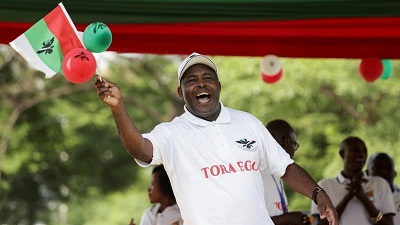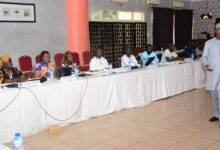
Burundi’s governing party, the CNDD-FDD, has chosen its secretary-general as the party’s presidential candidate in the upcoming election in May.
Evariste Ndayishimiye is among the most influential political figures in Burundi, and a close ally of President Pierre Nkurunziza.
The incumbent President, Mr Pierre Nkurunziza, who has been in power since 2005, will not seek a new term.
Mr Ndayishimiye, 52, is a former minister of interior and security, and runs the department of military affairs in the president’s office.
He is a former rebel combatant of the CNDD-FDD who survived the ethnic cleansing of Hutu students at the University of Burundi in 1995.
The party’s endorsement of Mr Ndayishimiye is likely to nurture optimism, the BBC’s Bernard Bankukira says.
In 2015, the impoverished East African country was plunged into its worst crisis since the end of a 12-year civil war in 2005, when Mr Nkurunziza’s ultimately successful bid for a third term in power sparked protests by opposition supporters who said it was unconstitutional.
In 2018, Mr Nkurunziza announced he would not stand for further presidential terms after changing Burundi’s constitution, a move that sparked violent protests and was seen by many as a way for him to cling to power indefinitely.
Last week, Burundi’s parliament has voted to pay $530,000 (£400,000) to President Pierre Nkurunziza and provide him with a luxury villa when he leaves office.
The draft law, which has been presented to the cabinet for approval, also awards him a lifetime salary.
It also proposes that Mr Nkurunziza be elevated to the title of “supreme leader” when he steps down in May.
Burundi was plunged into a constitutional crisis in 2015 when he successfully ran for a third term.
The move sparked violent protests by opposition supporters which morphed into reprisal attacks.
Last year a UN commission accused the government of human rights abuses, including executions, arbitrary arrests, torture and sexual violence.
Burundi called the claims “lies”.
Last year, Burundi banned the BBC from operating in the country, accusing it of producing a documentary that had damaged the country’s reputation.
– BBC





